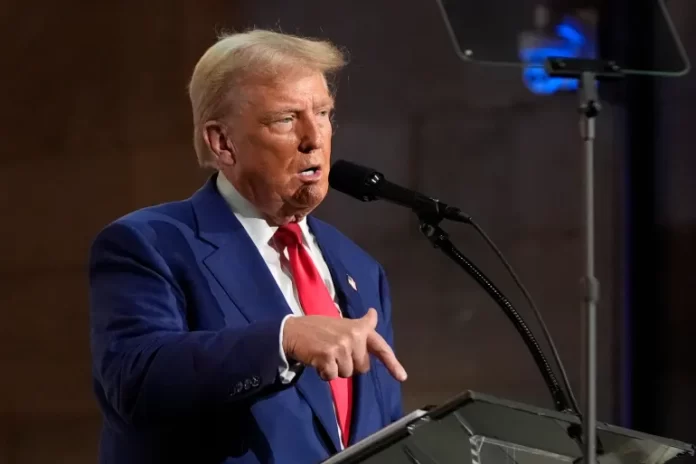U.S. President Donald Trump has signed an executive order aimed at redefining birthright citizenship in the United States.
Signed on January 20, 2025, shortly after his inauguration, the order seeks to limit automatic U.S. citizenship to children born to parents who are U.S. citizens or permanent residents.
This new directive, which is set to take effect within 30 days, has significant consequences for immigrant communities, particularly those living in the U.S. unlawfully.
The order prohibits the State Department from issuing passports to children born in the U.S. to non-citizen parents and directs the Social Security Administration to no longer recognize these children as U.S. citizens.
Birthright citizenship has been protected by the 14th Amendment of the U.S. Constitution, which states that “all persons born” in the U.S. “are citizens of the United States.” The amendment’s opening sentence ensures that anyone born or naturalized in the U.S. is a citizen, as long as they are subject to U.S. jurisdiction.
Under Trump’s new order, children born to undocumented Nigerian immigrants or those on temporary visas may no longer qualify for U.S. citizenship by birth.
This change also raises concerns for children who could face deportation alongside their parents under broader immigration policies. Many Nigerians have moved to the U.S. seeking opportunities through education, work, or asylum in order to escape hardships at home.
This shift will particularly impact families who had hoped their U.S.-born children would benefit from citizenship, gaining access to public education, federal benefits, and long-term residency rights. Historically, the U.S. has been a favored destination for “birth tourism,” with many Nigerian pregnant women traveling to the U.S. to give birth and secure U.S. citizenship for their children. These families now face uncertainty about the future of their children’s status.
Trump’s executive order has been met with strong opposition from civil rights groups, including the American Civil Liberties Union (ACLU), which argues that it violates the 14th Amendment. Legal experts have raised doubts about the order’s ability to withstand judicial challenges, but its impact could create fear and confusion among Nigerian immigrants, both prospective and current.
In addition to this immigration order, Trump declared a national emergency over illegal immigration at the U.S.-Mexico border and labeled criminal cartels as terrorist organizations. These actions form part of his broader effort to undo the immigration policies of the Biden administration, including reversing an order that limited deportation priorities to serious criminals, national security threats, and those apprehended at the border.
Trump Pulls U.S. Out of WHO and Paris Climate Agreement
Trump has also signed an executive order withdrawing the U.S. from the World Health Organization (WHO), reversing the Biden administration’s 2021 decision to rejoin the global health body. Trump criticized the WHO’s handling of the COVID-19 pandemic and alleged political influence from countries like China. He pointed out that the U.S. contributes more funding to the organization than many other countries, including China.
The withdrawal halts U.S. funding to the WHO, recalls American personnel, and mandates a review of U.S. global health strategy. Additionally, Trump has pulled the U.S. out of the Paris Climate Agreement, calling the treaty a “one-sided rip-off” and accusing China of pollution without facing consequences. With this move, the U.S. joins countries like Libya, Iran, and Yemen as non-signatories to the legally binding climate treaty.
Delay in TikTok Ban
Trump has also delayed the enforcement of a law that would have banned TikTok and other apps controlled by non-allied nations. Originally set to take effect on January 19, 2025, the law prohibits the distribution and updates of apps linked to national security concerns. Trump’s executive order gives the administration 75 days to assess TikTok’s security risks and evaluate any mitigation measures.
These moves are generating strong reactions both domestically and internationally, with critics warning that they could undermine global cooperation in public health and climate efforts.



